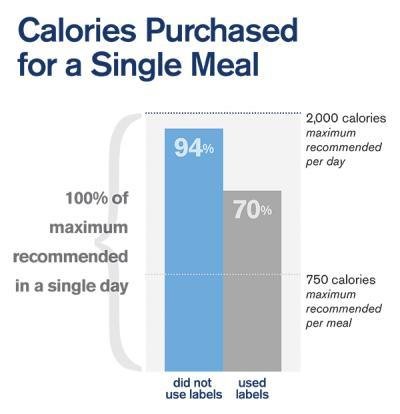With Americans purchasing nearly a third of their calorie intake from foods not prepared at home, a new study accentuates the need for nutritional data to help diners make healthier food choices. (Credit: Drexel University)
Nov. 18 (UPI) -- Diners at full-service restaurants were more likely to choose healthy meals if provided with nutritional labeling on their menus, said researchers at Drexel University.
Customers provided with this information were more likely to order food that had 151 fewer calories, 224mg less sodium and 3.7 grams less saturated fat as compared to people not provided this information.
"While previous studies have shown mixed impacts of menu labeling in fast food settings, this study suggests that nutrition information may be particularly useful in full-service restaurants," said Donald F. Schwarz, MD, health commissioner for the City of Philadelphia and a co-author of the study, published in the American Journal of Preventive Medicine.
The study was conducted at seven outlets of a large full-service restaurant chain. Around 80 percent of the people reported seeing the labels and 26 percent said they used to the label to decide on their food choice. It was observed that those who used the labels ordered food with 400 less calories as compared to the overall average.
At present, Americans get a third of their daily calorie intake from foods prepared away from home, highlighting the importance of such labeling in maintaining a healthy population. The Affordable Care Act will make nutritional labeling mandatory at full-service and fast food restaurants with more than 20 outlets.
"We also need to pursue approaches that make the healthy choice the default," said co-author Giridhar Mallya, director of policy and planning for the Philadelphia Department of Public Health. "This might include product reformulation, promoting healthier options on menus, and offering smaller portion sizes."







